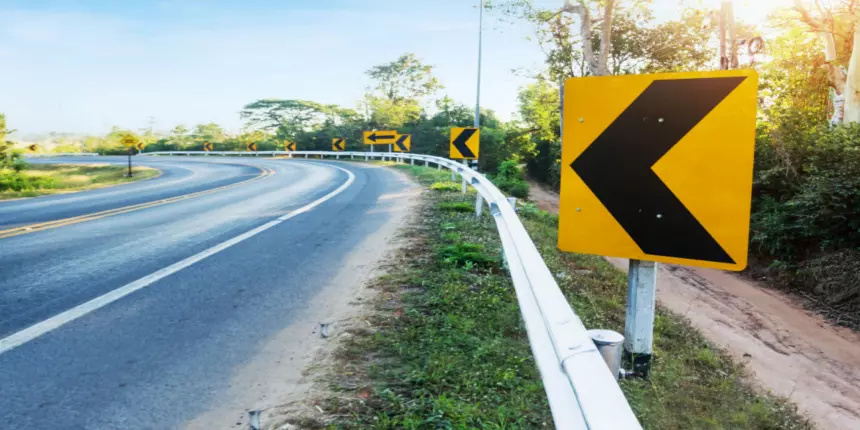Home — Essay Samples — Information Science and Technology — Computer Security — How to Stay Safe Online: Safeguarding Against Internet Threats

How to Stay Safe Online: Safeguarding Against Internet Threats
- Categories: Computer Security Cyber Security
About this sample

Words: 2046 |
11 min read
Published: Aug 31, 2023
Words: 2046 | Pages: 4 | 11 min read
Table of contents
Introduction, encrypted messaging: online safety and risks, dangers of phishing, ensuring the child's safe online, the threat of clickjacking.
- Lee, M. (2017). What Is Encryption and How Does It Work? NortonLifeLock. https://www.nortonlifelock.com/blogs/tech-safety/what-is-encryption
- Smirnoff, L., & Turner, B. (2019). Symmetric vs Asymmetric Encryption: What’s the Difference? Thales Group. https://blog.thalesgroup.com/cyber-security/en/symmetric-vs-asymmetric-encryption-whats-the-difference/
- Almeida, D. (2019). What Is Asymmetric Encryption? DZone Security. https://dzone.com/articles/what-is-asymmetric-encryption
- Vandersteen, J. (2019). Pros and Cons of Encryption. NortonLifeLock. https://www.nortonlifelock.com/blogs/tech-safety/pros-and-cons-of-encryption
- Lowry, C. (2016). University warns of fake payroll email phishing scam. The University Daily Kansan. https://www.kansan.com/news/university-warns-of-fake-payroll-email-phishing-scam/article_528a4a4e-0f2d-11e6-8ae4-6b67356c9b49.html
- Fruhlinger, J. (2019). Phishing explained: How it works and how to protect yourself. CSO Online. https://www.csoonline.com/article/2117843/what-is-phishing-how-this-cyber-attack-works-and-how-to-prevent-it.html
- Korolov, M. (2016). Ransomware, phishing and cyber attacks scare business officials. CSO Online. https://www.csoonline.com/article/3177660/ransomware-phishing-and-cyber-attacks-scare-business-officials.html
- Lord, N. (2019). 5 Ways to Protect Against Ransomware. Dark Reading. https://www.darkreading.com/risk/5-ways-to-protect-against-ransomware/a/d-id/1336155
- Lohmann, R. (2012). Teens and Cyberbullying : Study Reveals Surprises. HuffPost. https://www.huffpost.com/entry/teens-and-cyberbullying-s_b_1392962
- Tai, Z. (2014). Anonymity on the Internet Makes People Less Kind and More Hostile. Scientific American. https://www.scientificamerican.com/article/internet-anonymity-makes-people-less-kind-more-hostile/
- Lord, N. (2019). 4 Strategies to Prevent Child Online Bullying. Dark Reading. https://www.darkreading.com/edge/theedge/4-strategies-to-prevent-child-online-bullying/b/d-id/1335869
- Lohmann, R. (2012). Teens and Cyberbullying: Study Reveals Surprises. HuffPost. https://www.huffpost.com/entry/teens-and-cyberbullying-s_b_1392962
- Sood, A. (2014). Online Shopping Sites Prone to Clickjacking Attacks. Symantec Blogs. https://symantec-enterprise-blogs.security.com/blogs/threat-intelligence/online-shopping-sites-prone-clickjacking-attacks

Cite this Essay
Let us write you an essay from scratch
- 450+ experts on 30 subjects ready to help
- Custom essay delivered in as few as 3 hours
Get high-quality help

Dr. Heisenberg
Verified writer
- Expert in: Information Science and Technology

+ 120 experts online
By clicking “Check Writers’ Offers”, you agree to our terms of service and privacy policy . We’ll occasionally send you promo and account related email
No need to pay just yet!
Related Essays
4 pages / 2190 words
3 pages / 1410 words
4 pages / 1850 words
2 pages / 870 words
Remember! This is just a sample.
You can get your custom paper by one of our expert writers.
121 writers online
Still can’t find what you need?
Browse our vast selection of original essay samples, each expertly formatted and styled
Related Essays on Encryption
In an effort to understand the human mind, philosophers and scientists alike have looked towards complex technology to help explain psychological phenomena. In medieval times, philosophers compared the brain to a hydraulic [...]
What is AI? Why is Machine learning a hot topic these days in the tech world? How does it affect us and to what extent we have used it till today? Do you know that many of the websites like Facebook, Instagram, and YouTube are [...]
As vital to our lives, information technology is facing a number of serious problems and it is up to IT professionals and IT consumers to respond. As more emerging IT technologies become available on the market, most IT experts [...]
It is a branch of computer science where machines can sense, learn, reason, actand adapt to the real world, amplifying human capabilities and automating tedious or dangerous tasks. Some experts believe AI has the potential to [...]
“The question of whether a computer can think is no more interesting than the question of whether a submarine can swim.” This quote from Edsger W. Dijkstra is a fantastic illustration of the question that surrounds the world [...]
The term “robotics” was first coined by the legendary science fiction writer Sir Isaac Asimov in his 1941 short story “Liar!”. One of the first to see the vast potential of the up and coming technologies that were yet to see [...]
Related Topics
By clicking “Send”, you agree to our Terms of service and Privacy statement . We will occasionally send you account related emails.
Where do you want us to send this sample?
By clicking “Continue”, you agree to our terms of service and privacy policy.
Be careful. This essay is not unique
This essay was donated by a student and is likely to have been used and submitted before
Download this Sample
Free samples may contain mistakes and not unique parts
Sorry, we could not paraphrase this essay. Our professional writers can rewrite it and get you a unique paper.
Please check your inbox.
We can write you a custom essay that will follow your exact instructions and meet the deadlines. Let's fix your grades together!
Get Your Personalized Essay in 3 Hours or Less!
We use cookies to personalyze your web-site experience. By continuing we’ll assume you board with our cookie policy .
- Instructions Followed To The Letter
- Deadlines Met At Every Stage
- Unique And Plagiarism Free
Online safety

Abbie's bullying story
Do you know what cyberbullying is? Watch the video to find out what happened to Abbie.
- Read more about Abbie's bullying story
- 13 comments
- Log in or register to post comments

Digital citizenship
What do you know about digital citizenship? Practise your reading in English with this text.
- Read more about Digital citizenship

Print the worksheet about digital citizenship and complete the exercises to help you practise your English!

Five internet safety tips
Do you know any internet safety tips? Watch the video to find out how to be safe online!
- Read more about Five internet safety tips

Follow the digital trail
Did you know that every time we go online our digital footprint gets bigger? Find out all about it in this video.
- Read more about Follow the digital trail

Get involved in Safer Internet Day
Do you always believe what you hear or read on the internet? Watch this video to find out more.
- Read more about Get involved in Safer Internet Day

Internet safety
What must and mustn't you do when you're online? Listen to the grammar chant and find out! Can you hear the modals must and mustn't in the chant?
- Read more about Internet safety
- 23 comments

It's easy to click
It’s easy to click on lots of different links when you’re online. Listen to this poem about what to do if you open something that makes you feel bad.
- Read more about It's easy to click

Practise your writing by answering the questions and telling us what you think about online safety.
- Is it a good idea to give your real name on the internet?
- How can we stay safe online?
- Tell us your top online safety tips.
- Read more about Online safety
- 37 comments

Problem page
Look at the problem page then do the exercises to help you practise writing in English.
- Read more about Problem page
- 82 comments

Safer Internet Day
Did you know that there's a special day for learning about how to be safe online? Read this article to find out about Safer Internet Day.
- Read more about Safer Internet Day

The bigger picture – Safer Internet Day
We see lots of different pictures every time we go online. Why is it important to think about the images we look at? Watch the video to find out.
- Read more about The bigger picture – Safer Internet Day

We the Digital Citizens
Do you know how to use the internet safely? Watch this video to find out!
- Read more about We the Digital Citizens

What's cyberbullying?
What do you know about cyberbullying? Watch this video to find out what to do if you see cyberbullying.
- Read more about What's cyberbullying?
English courses for children aged 6-17
Sign up to our newsletter for free learning tips and resources
We will process your data to send you our newsletter and updates based on your consent. You can unsubscribe at any time by clicking the "unsubscribe" link at the bottom of every email. Read our privacy policy for more information.
- Weaver Magazine Vol.6
- Weaver Magazine Vol.5
- Weaver Magazine Vol.4
- Weaver Magazine Vol.3
- Weaver Magazine Vol.2
- Weaver Magazine Vol.1
- Institutes / Organizations
- Expert Advice
- Relationship
- Health & Fitness
- Entertainment
- Success Stories

“Stay home, stay safe” is the current motto. But the more time you spend online, the greater the risk of cyber threats. During the pandemic, the frequency of online crimes has risen exponentially. According to an FBI report of 2020, the number of instances has doubled compared to previous years. Since we can’t stop using the Internet entirely, how can we protect ourselves?
This article:
- examines the six main threats you face online
- provides a list of nine effective tips on how to stay safe
- contains an infographic that is easy to print out
- Top 6 Cybersecurity Threats
9 Internet Safety Tips
- Internet Safety Infographic
Top 6 Cybersecurity Threats in 2024
The FBI released a report created by the Internet Crime Complaint Center. It revealed that in 2020 the number of registered cybercrimes almost doubled compared to the previous year. Victims have lost large quantities of money due to different types of online scams. What caused such a drastic rise in online crimes?
One theory is that those who have been left unemployed have begun to make money as cybercriminals. These job seekers are so desperate that they agree to work for organized groups of criminals who scam Internet users. Unfortunately, this is the new reality that the high unemployment rates from the pandemic have created.

Online frauds are becoming more and more sophisticated. Now, successful hackers also use tactics from human psychology and social engineering . Cybercriminals find weaknesses by applying psychological tricks. They blackmail people through social media or their phones. To keep yourself and your money safe, you need to be aware of all the online threats described below.
- Phishing Attacks Phishing is one of the most popular types of cyber-attacks. The method works by sending out personalized messages to people and inviting them to click a link. These links damage the victim’s operating system by installing harmful software or even compromising the victim’s safety through the exposure of private information. Since most people are aware of such attacks, cybercriminals have had to develop new methods to trick users. Now, they use machine learning to create even more convincing messages. The main goal is to fool employees into disclosing sensitive information , such as passwords to the organization’s systems or credit card data.
- Scareware Like phishing, this type of cybercrime is based on social engineering. Scareware describes all software that tricks users into visiting websites that contain viruses. These can be especially dangerous because they can mimic notifications from antivirus software . They show up in the form of pop-up messages that claim to have detected a virus on your computer. Such notifications look authentic. Users don’t think twice before paying for the installation of the software that can fix the supposed problem. However, what they receive instead is malware that intends to steal private data. Often, scareware saves your credit card information so that cybercriminals can use it for identity theft.
- Third-Party Apps Even though third-party apps may have some benefits, they still carry potential risks to your privacy. Such apps ask for your permission to access your accounts. For example, some post on your social media accounts via other apps. This saves time and seems handy, right? Not so fast! There have been many cases where third-party apps have spammed and posted messages on people’s accounts. However, that’s not the worst thing they can do. Those apps can potentially hand your personal data over to other parties . Your security and privacy are undermined with third-party apps.
- DDoS Attacks Distributed denial-of-service (DDoS) attacks are usually aimed at websites or online services. These attacks try to overwhelm a website with so much traffic that the server can’t withstand the assault. This can be in the form of an enormous number of requests or incoming messages. As a result, the website crashes and fails to operate normally. Sometimes, these attacks are mild or demand that you transfer money. However, with attacks powerful enough, hackers can take control of huge international services, such as Amazon, Netflix, or even Visa. Another way cybercriminals use DDoS attacks is to initiate them as a distraction. While the company or organization is trying to get things under control, the criminal steals data or installs malicious software.
- Cloud Threats The idea behind cloud threats is simple – hackers use cloud services to retrieve personal data stored there. Sometimes accessing cloud data is just a first step in their plan to perform a DDoS attack or blackmail the users. Many companies and organizations have been the victims of these attacks. In 2020, the situation worsened. Individual users and big organizations have been reporting more and more cases of data loss through cloud attacks. Sometimes, cybercriminals remain unnoticed in the cloud system until much later. The time they spend preparing the attacks helps them evade security measures.
- Work-from-Home Threats Since the start of the pandemic, many people have started working from home, which means that they receive less protection from their employers in regards to cybersecurity. The risks have increased for employees, which has IT specialists pretty worried. In addition to all the threats described above, users are exposed to the risks of using public Wi-Fi . Those who work from home are suffering from more phishing attacks as well. In part, this is due to the more active use of email and messaging apps.
All of these threats seem quite dangerous to your privacy, don’t they? What can you do to protect yourself from cyber-attacks? You don’t have to become an IT expert. Just following a few simple rules is enough.
Here are our main tips on how to keep cybercriminals away:
- Capital letters
- Unique signs
There are tools that can make this process easier. For example, password generators provide you with solid and secure passwords in just a few seconds.
- Don’t share personal data on your social media accounts. Sharing pictures of major life events or everyday moments on social media may seem fairly innocent. However, you should probably be more careful. Everyone has access to that information. Skilled cybercriminals have no trouble tracking down your relationships and other details about your life. They may use what they find to trick your friends into giving up sensitive information. It’s not hard to find out dates of birth, email addresses, interests, and details about family members, which makes it even easier for hackers to break into your account (see the first tip to avoid this!).
- Visit only secure websites. Sometimes, website content may seem too appealing not to visit. You might even go ahead and create a profile, sharing your personal information. You should be careful, though, because not all websites are safe places. Who knows what malicious programs and scams are hidden there? Before doing anything, make sure you check the website address. URLs beginning with “https” are safer than ones with “http” because the letter “s” stands for security. Another thing to look out for is a small lock sign near the URL . Nowadays, web browsers are able to recognize safe websites and mark them as secure with this sign.
- Use legitimate software. Yes, we understand that it carries a high price tag, but do you really want to take risks? Going to unsafe websites and using third parties to get free software is not the best idea nor the most ethical practice. Whenever you want to get an app or a program, you should do it through an official provider’s website, whether or not you pay. This ensures the authenticity of the software. Otherwise, you risk downloading a virus or malicious program instead. Don’t forget to keep everything updated!
- Be careful when using credit cards. It is estimated that for every $100 spent by credit card users, about $10 is lost due to fraud . There are many dangers in using your cards for online shopping, but these tips will help you avoid those traps. First of all, try not to use debit cards that are directly linked to your bank account, and use only one card to purchase things online. Another thing to consider is adding a second layer of protection, which is usually offered by your bank. For example, not only will you be asked to put in a password, but a code sent to your email or phone will be required. Lastly, don’t forget to check if the website is safe.
- Use two-step verification. It’s easy for hackers to guess your password and steal your personal data unless they have to verify that they are the rightful owners. How is this done? The most common solution is a process called two-step verification. For example, Google offers this option to all of its users. Instead of simply typing in your password, you also need to enter a code that is sent to your phone in order to log in to your account. Many websites and services offer these security measures (such as banks, which we highlighted in the previous tip).
- Steer clear of phishing scams. Chances are that at least once in your life, you have received a message with questionable content. Keep an eye out for similar ones and never respond or click on any links! Typically, the message contains some irresistible offer or could allegedly be sent from a website you trust. Sometimes, they can appear as notifications about an issue, calling for you to take some action. It is essential to recognize whether the sender of these messages is someone you actually know. Always remember to follow the tips described above, such as using two-step verification and legitimate software.
- After getting a router from your provider, make sure you change its name and password . It is not hard to do by yourself, and such a measure can provide additional security.
- It is also a good idea to see whether your new router has the most recent security protocols since these make it harder for cybercriminals to hack into it.
- Don’t forget to log out. The convenience of staying logged in to your favorite websites is high, but it is dangerous for the security of your personal information. Not only can online services keep you logged in at all times, but they can also save all of your data. Sometimes, websites don’t even ask if you want them to remember passwords. We know that it is more difficult to enter long passwords every time you enter a website, especially from your phone, but this provides additional security. Think about these issues carefully and determine your priorities. We are only here to help you.
Internet Safety Tips: Infographic
In this infographic, we have put together all the best tips to help you stay safe online. These nine tips are easy to incorporate into your daily life. Read over this list of small things you can do every day to protect your private information (it’s easy to print out, too!).

To sum up, in today’s world, you need to stay alert even when you are at home using your laptop. Being aware of the ways hackers steal your sensitive data is essential. Besides, we highly recommend making good use of the tips we provided in this article. You can start making your online life safer right now!
- Share to Facebook
- Share to Twitter
- Share to LinkedIn
- Share to email
![online safety essay in english UniPapers Review—Trustworthy Academic Service [10+ Years of Experience]](https://custom-writing.org/blog/wp-content/uploads/2021/04/close-up-woman-working-laptop-284x153.jpg)
The issue of students struggling with home assignments and seeking additional help always causes active discussions. Especially when academic assistance services are involved in the talks. We can’t deny that homework help websites have been surrounded by controversies for quite a while (more than a decade, actually). Some people see...

Have you ever felt like you could use some additional help with assignments? If the answer is yes, then you’re not alone. The number of students who struggle with their academic tasks is a lot bigger than you might expect. The main problem here is that curriculums in high schools,...

Every student has their own good reasons to be looking for help with assignments. Overload with too much homework, other tasks and responsibilities to take care of, part-time job, lack of information or resources, insufficient language skills in ESL students… The list can go on and on. The fact that...

How do you deal with criticism? The first reaction many of us have is to defend ourselves, or worse, fight back. We can feel offended, seeing negative feedback as a dismissal of our work. Yet, while criticism can feel hurtful and demoralizing, it can also be viewed in a positive...

This infographic contains all the basic information on the benefits of mindfulness for students. It also describes 6 simple mindfulness techniques you can use in your daily life. In order to find the best ways of applying those thecniques, you can take a learning style quiz for students to find...

This infographic contains nine tips on organizing your study space so that you could work without any distractions. Wondering how to choose the furniture, organize and decorate your place, and what colors to use? Here you’ll find the answers!

The winter holidays are a much-anticipated break for everyone, particularly for school and college students. It’s an opportunity to get some much-needed rest and refresh their minds. Afterward, students can get back to class, full of strength and inspiration. While relaxation is essential during this period, it is also possible...

When you participate in face-to-face communication, your appearance, tone of voice, and word choice determine the impression you make. In the era of globalization, the internet allows us to contact people we have never seen and might never meet. This online interaction can impact our lives even more than our...

You’ve graduated high school and got admitted to college or university. Or maybe you’ve already been on that continued path to getting a degree for some time. Whatever the case is, let’s face it—studies can get unbearably tough.

Are you wondering what the most effective study methods are? Do you want to know how to study fast in less time? Do you require more time for extracurricular activities but have to reserve to get prepared for exams? With our scientifically proven study tips and tricks for college students,...

Learning English as a second language and want to make progress but don’t know how? Spend a lot of money on ESL textbooks and classes? You can find many free or affordable resources for ESL students online! Our team listed ESL websites for listening, reading, speaking, and writing to develop...

According to recent statistics, approximately 72% of adults are passive job-seekers. That means that hundreds of candidates are aiming for your potential job. And they might be more experienced and skilled than you. We’re sure there are many advantages to hiring you. But to beat all those competitors, you, yesterday’s...
Not only would I give the tips you gave but for eachvone as a teacher I would try to find concrete examples of how people accomplish the cyber acts. I use to find many in my junk mail. Illustrate to the students how they are worded and take advantage of the innocent.

Thanks for the feedback, Susan. Your opinion is very important for us!
Articles on Online safety
Displaying 1 - 20 of 55 articles.

Digital trade protocol for Africa: why it matters, what’s in it and what’s still missing
Franziska Sucker , University of the Witwatersrand

What is doxing, and how can you protect yourself?
Rob Cover , RMIT University

Teens on social media need both protection and privacy – AI could help get the balance right
Afsaneh Razi , Drexel University

Canada should not fall behind on implementing safety measures for children online
Azfar Adib , Concordia University

How to protect yourself from cyber-scammers over the festive period
Rachael Medhurst , University of South Wales

Protecting kids online: A guide for parents on conversations about ‘sextortion’
Camille Mori , University of Calgary and Sheri Madigan , University of Calgary

When to give your child their first mobile phone – and how to keep them safe
Andy Phippen , Bournemouth University

The vast majority of us have no idea what the padlock icon on our internet browser is – and it’s putting us at risk
Fiona Carroll , Cardiff Metropolitan University

Internet of Things: tech firms have become our digital landlords – but people are starting to fight back
Guido Noto La Diega , University of Stirling

Dark patterns: how online companies strive to keep your money and data when you try to leave
Richard Whittle , University of Salford and Stuart Mills , University of Leeds

‘My brother will pick it up, what’s your PayID?’ How to avoid this scam when selling stuff online
Cassandra Cross , Queensland University of Technology

Beginning of the end: how Elon Musk’s removal of the block function on X could trigger its hellish demise
Jay Daniel Thompson , RMIT University

Can human moderators ever really rein in harmful online content? New research says yes
Marian-Andrei Rizoiu , University of Technology Sydney and Philipp Schneider , EPFL – École Polytechnique Fédérale de Lausanne – Swiss Federal Institute of Technology in Lausanne

Think you might be dating a ‘vulnerable narcissist’? Look out for these red flags
Megan Willis , Australian Catholic University

Why children don’t talk to adults about the problems they encounter online

3 in 4 people experience abuse on dating apps. How do we balance prevention with policing?
Kath Albury , Swinburne University of Technology and Daniel Reeders , Australian National University

Dozens of US schools, universities move to ban TikTok
Nir Kshetri , University of North Carolina – Greensboro

Todd Sampson’s ‘Mirror Mirror’ raises the alarm on our lives online – but not all its claims are supported by evidence
Kate Mannell , Deakin University and Caitlin McGrane , RMIT University

What teachers think of children and young people’s technology use
Sarah Hodge , Bournemouth University

Older Americans are given the wrong idea about online safety – here’s how to help them help themselves
Nora McDonald , University of Cincinnati and Helena M. Mentis , University of Maryland, Baltimore County
Related Topics
- Cybersecurity
- Internet use
- Online abuse
- Online scams
- Social media
Top contributors
Researcher: Digital Literacy and Digital Wellbeing, Western Sydney University
Professor of IT Ethics and Digital Rights, Bournemouth University
PhD candidate researching children's play in digital games, The University of Melbourne
Senior Lecturer in Digital Cultures, SOAR Fellow., University of Sydney
Professor of Cyber Security Practice, Edith Cowan University
Senior Lecturer, Journalism and Digital Communication, University of Central Lancashire
University at Buffalo
Associate Professor of Criminology, Monash University
Professor of Social Psychology, London School of Economics and Political Science
Lecturer in Political Theory, University of York
Professor & Australian Research Council Future Fellow, Social and Global Studies Centre, RMIT University
Professor of Internet Law, Queen Mary University of London
Senior Lecturer in Education, University of Newcastle
Reader, School of Education, University of Birmingham
Research Fellow, Australian Catholic University
- X (Twitter)
- Unfollow topic Follow topic
Search form
- Study break
- Magazine zone
Online safety UK

How do you make sure you stay safe online? Everyone who uses the internet needs to know how to use it safely. Read about online safety in the UK.
Instructions
Do the preparation task first. Then read the article and do the exercises to check your understanding.
Preparation
In the UK 96 per cent of young people regularly use the internet to communicate, according to a survey of 24,000 British people aged from 9 to 11. A report shows that only 40 per cent of young people know that personal information shared online stays online forever. There are about 250 million tweets generated every day and around 800 million Facebook users – that means a lot of information is shared online. So are young people using the internet safely?
Private or public
Do you know how to change your privacy settings on social media? For example, you can click on the ‘flower’ icon or on ‘settings’ on Facebook to get to your privacy settings. Then you can decide who sees your posts and personal information: friends, friends of friends or everyone. Do you want everyone in the world to be able to see your email address or just friends?
The BBC Share Take Care campaign is all about helping everybody, from little kids to the over-55s, to make their online activity safer and protect themselves on the web. The campaign says adults and teenagers need to be more careful with personal information and images online. An online security expert from the BBC was given only the names and the home town of two pairs of mothers and daughters in the UK and then he searched online for information that they had shared in social media. One mother and daughter pair are keen Twitter users. They had frequent personal Twitter chats that they thought were private but were in fact public! Now they both know that Twitter has a private messaging function and their chats really are private. The other mother was very embarrassed when the security expert showed her a picture of her partner in his underpants! She had forgotten about posting the photograph and quickly removed it. The security expert also found lots of their personal details like dates of birth, addresses, maiden names, favourite football teams and popstars. Nothing embarrassing, but potentially useful information for a cyber criminal.
Be kind and stay safe
Everybody knows that we should be polite and kind to people in real life and online. Unfortunately sometimes this doesn’t always happen. Where can you report online abuse or unkind messages to yourself or your friends? Do you know how to report inappropriate content online? For example, if you see an inappropriate tweet on Twitter you can click on ‘more’ and then choose ‘Report tweet’. You can then block all further tweets from that user.
Even well-liked celebrities can be targeted by cyberbullies. Tom Daley, the British Olympic diver, was abused online. His father died during the 2012 Olympic Games and Tom received some very cruel tweets about this.
Here are our top five tips for staying safe online:
- Be nice! Treat people online as you do in real life.
- Don’t post anything online that you wouldn’t want people in real life to see.
- Check your privacy and security settings on social media sites and keep them as private as possible. Make sure you know exactly who can see your posts.
- Don’t ever post personal information like your home address, your email or your phone number.
- If you see something online that worries or upsets you, tell an adult about it straight away.
Safer Internet Day
Safer Internet Day, or SID for short, tries to help people to use the internet correctly. SID started in 2004 and is organised in February every year in 74 countries around the world to promote safe and responsible use of online technology and mobile phones. Each year there is a different topic such as cyberbullying or social networking. The focus for SID’s next campaign is ‘Let’s create a better internet together’. SID organisers want children and young people, parents and carers, teachers and educators, as well as industry and politicians to work together to build a better internet for all of us, but particularly for children and young people.
There are special lessons prepared for schoolchildren on Safer Internet Day in Britain. The UK Safer Internet Centre will be working with schools in the UK to encourage young people to help other people stay safe. You can find out about SID on this website: http://www.saferinternet.org.uk/
Check your understanding: true or false
Check your understanding: gap fill, worksheets and downloads.
How do you make sure you stay safe online?

Sign up to our newsletter for LearnEnglish Teens
We will process your data to send you our newsletter and updates based on your consent. You can unsubscribe at any time by clicking the "unsubscribe" link at the bottom of every email. Read our privacy policy for more information.
- Home Products
- Small Business 1-49 employees
- Medium Business 50-999 employees
- Enterprise 1000+ employees
Top 15 internet safety rules and what not to do online

So much of our daily life revolves around the internet, from work to education and even talking with friends. A 2021 survey found that the average US household had around 25 internet-connected devices, up from 11 in 2019. The more online accounts and devices you have, the greater the scope for cybercriminals to cause you harm. That’s why it's now ever more essential to understand internet safety rules which protect you and your family from threats that may harm your data and devices. Read on to find out about key internet dangers and the ways to stay safe online.
The Key Dangers of the Internet
When you and your family use the internet, you are (often unknowingly) exposing yourself to a wide range of potential online threats. Digital landscapes as we know them are constantly evolving as cybercriminals devise new ways to target internet users. Here is a list of just some of the biggest internet dangers you and your family need to watch out for:
- Identity theft.
- Data breaches.
- Malware and viruses.
- Phishing and scam emails.
- Fake websites.
- Online scams.
- Romance scams.
- Inappropriate content.
- Cyberbullying.
- Faulty privacy settings.
Essential Internet Safety Tips
To avoid all of these dangers, we recommend following our essential internet safety tips when you or your family are online:
1. Make sure you’re using a secure internet connection
Although using public Wi-Fi is not recommended, it’s sometimes unavoidable when you are out and about. However, when you go online in a public place and use a public Wi-Fi connection, you have no direct control over its security, which could leave you vulnerable to cyberattacks. So, if you are using public Wi-Fi, avoid carrying out personal transactions that use sensitive data, such as online banking or online shopping.
If you need to do any one of these, use a Virtual Private Network or VPN . A VPN will protect any of the data you send over an unsecured network via real-time encryption. If you don't use a VPN, we recommend saving any personal transactions until you can use a trusted internet connection. You can find out more about what a VPN is here .
2. Choose strong passwords
Passwords are one of the biggest weak spots when it comes to cybersecurity. People often choose passwords that are easy to remember and, therefore, easy for hackers to crack with hacking software. In addition to this, using the same password for multiple sites puts your data at further risk. If hackers obtain your credentials from one site, they can potentially access other websites which use the same login details.
Select strong passwords that are harder for cybercriminals to crack. A strong password is:
- Long – made up of at least 12 characters (ideally more).
- A mix of characters – upper-case and lower-case letters plus symbols and numbers.
- Avoids the obvious – such as using sequential numbers (“1234”) or personal information that someone who knows you might guess (or that might already be online), such as your date of birth or a pet’s name.
- Avoids memorable keyboard paths.
Using a password manager can help. Password managers help users create strong passwords, store them in a digital vault (which is protected by a single master password) and retrieve them when logging into accounts online.
3. Enable multi-factor authentication where you can
Multifactor authentication (MFA) is an authentication method that asks users to provide two or more verification methods to access an online account. For example, instead of simply asking for a username or password, multifactor authentication goes further by requesting additional information, such as:
- An extra one-time password that the website's authentication servers send to the user's phone or email address.
- Answers to personal security questions.
- A fingerprint or other biometric information, such as voice or face recognition.
Multifactor authentication decreases the likelihood of a successful cyberattack. To make your online accounts more secure, it’s a good idea to implement multifactor authentication where possible. You can also consider using a third-party authenticator app, such as Google Authenticator or Authy, to help with your internet security.
4. Keep software and operating systems updated
Developers are constantly working to make products safe, monitoring the latest threats and rolling out security patches in case of vulnerabilities in their software. By using the latest versions of your operating systems and apps, you will benefit from the latest security patches. This is especially important for apps that contain payment, health or other sensitive information about a user.
5. Check that websites look and feel reliable
For any website you visit, especially ones you transact with (such as e-commerce sites), it's crucial that they are reliable. A key element to look out for is an SSL/security certificate . This means, lookout for URLs that start with “HTTPS” rather than “HTTP” (the “S” stands for “secure”) and have a padlock icon in the address bar. Other trust signals include:
- Text which is free from spelling and grammar mistakes – reputable brands will make an effort to ensure their websites are well-written and proofread.
- Images that are not pixelated and fit the screen's width correctly.
- Ads that feel organic and are not too overpowering.
- No sudden changes in color or theme. In some cases, where users have interacted with a particular website and returned to a familiar page from a link, subtle color or design changes might indicate forgery.
- The accepted standards of online payments – legitimate ecommerce websites use credit or debit card portals or PayPal, only. If a website is using another form of digital money transfer to accept payments, it is probably fraudulent.
6. Review your privacy settings and understand privacy policies
Marketers love to know all about you, and so do hackers. Both can learn a lot from your browsing and social media usage. But you can take charge of how much information third-parties can access. Both web browsers and mobile operating systems have settings to protect your privacy online. Social media sites, such as Facebook, Twitter, Instagram, LinkedIn, amongst others, have privacy-enhancing settings that you can activate. It’s worth taking a while to review your privacy settings across the board and make sure they are set to a level you are comfortable with.
Many of us accept privacy policies without reading them, but with so much data used for marketing and advertising (and hacking) purposes, it's a good idea to review the privacy policies of websites and apps you use, in order to understand how your data is collected and analyzed. However, bear in mind that even if your settings are set to private, very little data online is totally private. Hackers, website administrators and law enforcement could still have access to the information you regard as private.

7. Be careful of suspicious links and where you click
A careless click can expose your personal data online or infect your device with malware . That’s why it's essential to browse consciously and avoid certain types of online content – such as links from untrusted sources and spam emails, online quizzes, clickbait, ‘free’ offers or unsolicited ads.
If you receive an email that you're not sure about, avoid clicking on any links in it or opening any attachments.
In fact, it's best to avoid opening untrusted emails at all. If you’re not sure whether an email is legitimate or not, go directly to the source. For example, if you receive a suspicious email from your “bank”, call your bank and ask them if the email is genuine.
When you’re on a website, make sure links click through to relevant or expected topics. For example, if you click on a link that you think is about safaris in Africa, but instead you're taken to a clickbait-style page about celebrity weight loss or a “where are they now?” style piece, then quickly close the page.

8. Make sure your devices are secure
With up to 60% of people using mobile devices for shopping and finding information online, instead of a desktop, it’s important that they are secured correctly. With all your devices – phones, computers, tablets, smartwatches, smart TVs, etc. – it's good practice to use passwords or passcodes and other security options like fingerprint readers or face-scanning technology. These measures will reduce the likelihood of a cyberattack or your personal data being stolen by hackers.
9. Backup data regularly
It's important to backup important personal information on external hard drives and regularly create new backups. Ransomware – a type of malware – involves cybercriminals locking your computer so you can’t access valuable files. Backing up your data – and your family’s data – helps mitigate the impact of a ransomware attack. You can protect yourself further with appropriate security software. Other forms of malware deny you access to your personal data by overwhelming your system or simply deleting files, so be careful.
10. Close unused accounts
Over the years, many of us accumulate old accounts that we no longer use. These can be a weak link in terms of safety when using the internet – not only are old accounts more likely to have weaker passwords, but some of those sites may have poor data protection policies. In addition, cybercriminals could piece together the information you have left in them, for example, old social media profiles – such as your date of birth or location, etc. – to build up a picture of your identity in an attempt to hack you later. As a result, we recommend closing your old online accounts and requesting that your data be deleted from the relevant third-party servers.
11. Be careful what you download
A top goal of cybercriminals is to trick you into downloading malware, which can be used to open a “backdoor” to your machine. Malware might be disguised as an app – anything from a popular game to something that checks traffic or the weather. Or, it could be hidden on a malicious website that attempts to install malware on your device.
Malware causes damage – such as disrupting how your device operates, stealing your personal data or allowing unauthorized access to your machine. This usually requires some action on your part, but there are also drive-by downloads , where a website attempts to install software on your computer without asking for permission first. Think carefully before visiting a new website or downloading anything onto your device, and only download content from trusted or official sources. Regularly check your download folders and if unknown files appear on your system (potentially, from a drive-by), delete them immediately.
12. Be careful what you post and where
The internet does not have a delete key. Any comment or image you post online may stay online forever because removing the original won’t remove any copies that other people may have made. There is no way for you to ‘take back’ a comment you wish you hadn't made or remove an embarrassing image you posted. So, don't put anything online that you would not want a parent or prospective employer to see.
Similarly, be careful about disclosing personal information about yourself online. For example, avoid disclosing your social security number, address or date of birth in social media bios. You wouldn't hand personal information out to strangers individually, so don't hand it out to millions of people online.
Be careful about where you display or submit your email address. It's good to have a secondary, throwaway email account that you use solely for email sign-ups and subscriptions, separate from the one you use for friends and family, and separate from the one you use for work.
13. Be careful who you meet online
People you meet online are not always who they claim to be. Indeed, they may not even be real. Fake social media profiles are a popular way for hackers to groom unwary internet users and pick their cyber pockets. Apply the same caution in your online social life as you would for your in-person social life. This is particularly true with the rise of online dating scams in recent years .
14. Double check online information
Sadly, fake news, misinformation and disinformation are all present on the internet. It's easy to feel lost with the flood of information we're exposed to every day. If you read something you are unsure of, do your own research to establish the facts. Reliable websites will have references to the original information and source materials. Suspicious pages won’t offer any references at all. Read our guide to spotting fake news here .
15. Use a good antivirus and keep it updated
As well as following safety tips for online behavior, it's essential to use a good quality antivirus provider . Internet security software guards your devices and data and blocks common threats like viruses and malware (plus complex ones like spy apps, “cryptolockers” and XSS attacks). As with all operating systems and apps, it's essential to keep your antivirus updated to stay ahead of the latest cyberthreats.
3 Online safety rules for the kids
Although many of the tips to stay safe online are the same for adults and children, they are not easy or straightforward to explain. Often, children can accidentally be a gateway for malicious actors to gain access to your digital systems. It is therefore important to teach your kids the essentials of staying safe online in order to protect your home network from any unwanted accidents. Here are 3 areas that you should cover:
Digital Footprint
Your digital footprint, what exists of you online after usage, is an important concept that children need to know about. When teaching children about this, it’s important to focus on how information is readily available and how others could interact with this data (for example, email addresses and usernames that contain identifying information, which could be used for criminal activity). Wider discussions can also come from this, such as sharing content online (through social media, gaming accounts and emails). Make sure to clearly state what content is not allowed on the internet (photos, address, phone numbers and middle names).
Strong passwords are integral to modern cybersecurity measures today. Instructing children from a young age about the importance of strong passwords (ones that consists of at least 12 characters and are a mixture of letters, numbers and symbols) and their appropriate storage is one of the simplest ways to make the internet safer for your family. This is also why it can be very useful to have a password management system that can automatically fill in password credentials for different websites.
Communication
One of the most accessed routes for all manner of cybercriminal, online messaging and communication is a “must-have” conversation for your children’s safety. Primarily, it is important to explain how to identify and avoid messages, suspicious links, downloads or emails from strangers asking for identifying information online. This can also lead to a wider discussion about how to detect phishing scams and fake websites. The second most important part of safe online communication is correct engagement with others. Much like the real world, staying safe can sometimes depend on staying vigilant, engaging in polite communication and learning how to identify and not engage with bullying. Educate your child on what cyberbullying looks like and how to act kindly to others online.
Recommended products:
- Kaspersky Safe Kids
- Kaspersky Home Security
- Kaspersky Password Manager
Further reading:
- Do’s and don’ts for teaching internet safety to kids
- What is a security breach and how to avoid one?
- What is a Digital Footprint?
- Spam & Phishing | Phishing Scam Threats
Featured Articles

How to Strengthen your Cryptocurrency Security?

Is ChatGPT safe to use? What you need to know

Email Security for Small Businesses

How to use cryptocurrency safely: A guide to cryptocurrency safety

What Are NFT Rug Pulls? How To Protect Yourself From NFT Fraud?
We use cookies to make your experience of our websites better. By using and further navigating this website you accept this. Detailed information about the use of cookies on this website is available by clicking on more information .
Club Profiles

- Bahasa Indonesia

Choose language
Online safety tips.

In this video, brought to you by Premier Skills English and Learn English Teens, Jo and Jack take a look at the importance of staying safe online. After you have watched the video, take a look at the learn section and have a go at the activities to show what you have learned. Then, let us know your opinion in the talk and quiz section.


How much did you understand?
Now that you have watched the video, have a go at these activities and see how much you understand about online safety. Do you always follow the advice?
Jack : Hello. I’m Jack and I manage the Premier Skills English website which is a website for people who are learning English and love football.
Jo: And I’m Jo and I manage the LearnEnglish Teens website which is a site for teenagers who are learning English.
Jack: So, why are we here? Well, we’re here to give you some advice about how you can stay safe online.
Jo: That’s right. Online safety is really important and we want to make sure that all of our users are safe whether you're on our websites ...
Jack: … or playing games or on Facebook or Twitter or whenever you’re online ... we want you to stay as safe as you can ...
Jo: So, we’re going to share eight tips with you.
Jack: OK, so our first tip is very simple. It’s: be nice to people online . You should treat people online in the same way as you treat people offline. Remember, online comments can often be misunderstood so be careful what you say to people and how you say it. Respect the people you interact with and they should respect you too.
Jo: OK, tip number two is: take care with what you share. Don’t post anything online that you wouldn’t want your mum, your dad or your grandma to see! The moment you upload a video or a photo it can be shared again and again and again and it could finally appear anywhere and be seen by anyone .
Jack: Tip number three is: keep personal information private . Never post personal information online. This includes the name of your school, your home address, your phone number, your messenger or Skype ID...
Jo: It sounds really obvious but lots of the users on our websites try to do this. On LearnEnglish Teens and on Premier Skills English, all of the comments are pre-moderated. That means they are checked by our team of teachers before they go live on the site.
Jack: We make sure nobody posts personal information, but most sites don’t, so take care.
Jo: Now, let’s go to tip number four, which is: check your privacy settings. Do this on all the sites you use and make sure that only your friends can see your posts. Do you really want the whole world to see what you post online? Some things are best shared with just your friends so keep your online profiles as private as you can and choose your online friends carefully.
Jack: OK, on to tip number five: know how to report posts . You need to know how to report posts and how to block people on ALL of the sites you use. If you don’t know how to do this, find out. Remember that there are real people behind every website whose job it is to make sure you are kept safe and happy. They want you to keep coming back to their site, so they need to know about any problems you have.
Jo: Ok, now, we’ve had five really important tips already and we’ve still got three more to go. So, number six is: keep your passwords safe. Don’t share your passwords with your friends and make sure you choose passwords that are easy for YOU to remember but difficult for others to guess. Always include a number and some punctuation too. A question mark or a full stop makes your password much harder for someone else to guess.
Jack: OK, tip number seven. This is really important: n ever meet anyone in person that you met on the internet. Most people you meet online will be normal, but sadly, there are people online who are not who they seem. People sometimes pretend to be different; much older or younger than their real age and it’s very easy to use a photo on a profile picture that isn’t really you - so a girl could in fact be a boy or a boy could in fact be a girl …. Don’t take the risk and don’t meet anyone in real life that you’ve only ever met online.
Jo: Yep, t hat’s a really important one. Right, now we hope you’re remembering all of this! If you can only remember one of our tips - make it this one! Number eight is: i f you see anything online that you don’t like, tell someone you trust. Nothing should make you feel uncomfortable or unhappy. Choose a friend, a parent or a teacher and tell them what’s happening. If they can’t help you, tell someone else. Don’t keep it to yourself. OK - I think we’ve made it, Jack! But that’s a lot of information. Shall we revise what we’ve said?
Jack: Good idea. Let’s go for it.
Jo: Tip number 1: Be nice to people online.
Jack: Tip number 2: Take care with what you share.
Jo: Tip number 3: Keep personal information private.
Jack: Tip number 4: Check your privacy settings.
Jo: Tip number 5: Know how to report posts.
Jack: Tip number 6: Keep your passwords safe.
Jo: Tip number 7: Never meet anyone in person you’ve only met online.
Jack: Tip number 8: If you see anything online that you don’t like or you find upsetting tell someone you trust.
Jo: So, there we are! We hope you found this information useful and we look forward to seeing you on Learn English Teens …
Jack: ... and on Premier Skills English soon.
Please login to take this quiz.
What do you think?

Did you find the tips in the video useful?
Are you going to change anything you do online now that you have watched the video?
Answer the questions and leave your message below.
Leave a comment.
Log in to leave a comment

Hi, I want to download this video (the school where I teach does not have internet) but, I can't see how to do it. Can you help? Thanks
- Log in or register to post comments
Hi Rema Glad you like the video. I'm sorry you're having problems with the learn section. I just tried it and the activities seem OK to me. In the multiple choice question, you can still scroll through and see which questions you have answered and at the end, you get a report on all of your questions. Can you tell me more about the problem you're having? Thanks - Jack
Few days ago, when I was do exercise within learn section I haven't check answer and submit buttons. Yesterday I was do again this exercise and this two buttons were there (so problem is fixed). Can you tell me which verb describe check answer (e.g. When you look what I answer and when you define accuracy of my answers). That verb used teachers when they looked what answers students do right or wrong on exams. My score is now 1000 points ;)
Congratulations on reaching 1000 points! You're only the third player to get to a thousand! I think the verb you are looking for is 'to correct'. A teacher corrects exam papers or corrects a student's mistake. Is that the word you were thinking of?
Thanks for congratulations Rich and thanks for verb. Can I tell : Teacher revised exam papers.? Is revise similar to correct?
Revise has more meanings. In British English it is used to mean study before exams and it can also be used to say that some changes have been made to the original document. I think using the words 'corrected' or 'marked' is clearer.
What happen now with learn section? Now we don't know if we are answered on some question right or not (which verb describe this process, I think that is evaluated, but I'm not sure). By the way, nice lesson and useful tips.
Leaderboard
Learn more about staying safe online.
Practise your listening skills.
Learn language about giving advice.

Staying safe online
In this short guide to internet safety, Premier Skills English Video Blogger James gives you some useful tips and advice about how you can stay safe in cyberspace.
If you see anything online that you don’t like, tell someone you trust!

Keep your passwords safe!

Never meet anyone in person that you met on the internet.

- CBSE Class 10th
- CBSE Class 12th
- UP Board 10th
- UP Board 12th
- Bihar Board 10th
- Bihar Board 12th
- Top Schools in India
- Top Schools in Delhi
- Top Schools in Mumbai
- Top Schools in Chennai
- Top Schools in Hyderabad
- Top Schools in Kolkata
- Top Schools in Pune
- Top Schools in Bangalore
Products & Resources
- JEE Main Knockout April
- Free Sample Papers
- Free Ebooks
- NCERT Notes
- NCERT Syllabus
- NCERT Books
- RD Sharma Solutions
- Navodaya Vidyalaya Admission 2024-25
- NCERT Solutions
- NCERT Solutions for Class 12
- NCERT Solutions for Class 11
- NCERT solutions for Class 10
- NCERT solutions for Class 9
- NCERT solutions for Class 8
- NCERT Solutions for Class 7
- JEE Main 2024
- JEE Advanced 2024
- BITSAT 2024
- View All Engineering Exams
- Colleges Accepting B.Tech Applications
- Top Engineering Colleges in India
- Engineering Colleges in India
- Engineering Colleges in Tamil Nadu
- Engineering Colleges Accepting JEE Main
- Top IITs in India
- Top NITs in India
- Top IIITs in India
- JEE Main College Predictor
- JEE Main Rank Predictor
- MHT CET College Predictor
- AP EAMCET College Predictor
- GATE College Predictor
- KCET College Predictor
- JEE Advanced College Predictor
- View All College Predictors
- JEE Main Question Paper
- JEE Main Mock Test
- JEE Main Registration
- JEE Main Syllabus
- Download E-Books and Sample Papers
- Compare Colleges
- B.Tech College Applications
- GATE 2024 Result
- MAH MBA CET Exam
- View All Management Exams
Colleges & Courses
- MBA College Admissions
- MBA Colleges in India
- Top IIMs Colleges in India
- Top Online MBA Colleges in India
- MBA Colleges Accepting XAT Score
- BBA Colleges in India
- XAT College Predictor 2024
- SNAP College Predictor
- NMAT College Predictor
- MAT College Predictor 2024
- CMAT College Predictor 2024
- CAT Percentile Predictor 2023
- CAT 2023 College Predictor
- CMAT 2024 Registration
- TS ICET 2024 Registration
- CMAT Exam Date 2024
- MAH MBA CET Cutoff 2024
- Download Helpful Ebooks
- List of Popular Branches
- QnA - Get answers to your doubts
- IIM Fees Structure
- AIIMS Nursing
- Top Medical Colleges in India
- Top Medical Colleges in India accepting NEET Score
- Medical Colleges accepting NEET
- List of Medical Colleges in India
- List of AIIMS Colleges In India
- Medical Colleges in Maharashtra
- Medical Colleges in India Accepting NEET PG
- NEET College Predictor
- NEET PG College Predictor
- NEET MDS College Predictor
- DNB CET College Predictor
- DNB PDCET College Predictor
- NEET Application Form 2024
- NEET PG Application Form 2024
- NEET Cut off
- NEET Online Preparation
- Download Helpful E-books
- LSAT India 2024
- Colleges Accepting Admissions
- Top Law Colleges in India
- Law College Accepting CLAT Score
- List of Law Colleges in India
- Top Law Colleges in Delhi
- Top Law Collages in Indore
- Top Law Colleges in Chandigarh
- Top Law Collages in Lucknow
Predictors & E-Books
- CLAT College Predictor
- MHCET Law ( 5 Year L.L.B) College Predictor
- AILET College Predictor
- Sample Papers
- Compare Law Collages
- Careers360 Youtube Channel
- CLAT Syllabus 2025
- CLAT Previous Year Question Paper
- AIBE 18 Result 2023
- NID DAT Exam
- Pearl Academy Exam
Animation Courses
- Animation Courses in India
- Animation Courses in Bangalore
- Animation Courses in Mumbai
- Animation Courses in Pune
- Animation Courses in Chennai
- Animation Courses in Hyderabad
- Design Colleges in India
- Fashion Design Colleges in Bangalore
- Fashion Design Colleges in Mumbai
- Fashion Design Colleges in Pune
- Fashion Design Colleges in Delhi
- Fashion Design Colleges in Hyderabad
- Fashion Design Colleges in India
- Top Design Colleges in India
- Free Design E-books
- List of Branches
- Careers360 Youtube channel
- NIFT College Predictor
- UCEED College Predictor
- NID DAT College Predictor
- IPU CET BJMC
- JMI Mass Communication Entrance Exam
- IIMC Entrance Exam
- Media & Journalism colleges in Delhi
- Media & Journalism colleges in Bangalore
- Media & Journalism colleges in Mumbai
- List of Media & Journalism Colleges in India
- CA Intermediate
- CA Foundation
- CS Executive
- CS Professional
- Difference between CA and CS
- Difference between CA and CMA
- CA Full form
- CMA Full form
- CS Full form
- CA Salary In India
Top Courses & Careers
- Bachelor of Commerce (B.Com)
- Master of Commerce (M.Com)
- Company Secretary
- Cost Accountant
- Charted Accountant
- Credit Manager
- Financial Advisor
- Top Commerce Colleges in India
- Top Government Commerce Colleges in India
- Top Private Commerce Colleges in India
- Top M.Com Colleges in Mumbai
- Top B.Com Colleges in India
- IT Colleges in Tamil Nadu
- IT Colleges in Uttar Pradesh
- MCA Colleges in India
- BCA Colleges in India
Quick Links
- Information Technology Courses
- Programming Courses
- Web Development Courses
- Data Analytics Courses
- Big Data Analytics Courses
- RUHS Pharmacy Admission Test
- Top Pharmacy Colleges in India
- Pharmacy Colleges in Pune
- Pharmacy Colleges in Mumbai
- Colleges Accepting GPAT Score
- Pharmacy Colleges in Lucknow
- List of Pharmacy Colleges in Nagpur
- GPAT Result
- GPAT 2024 Admit Card
- GPAT Question Papers
- NCHMCT JEE 2024
- Mah BHMCT CET
- Top Hotel Management Colleges in Delhi
- Top Hotel Management Colleges in Hyderabad
- Top Hotel Management Colleges in Mumbai
- Top Hotel Management Colleges in Tamil Nadu
- Top Hotel Management Colleges in Maharashtra
- B.Sc Hotel Management
- Hotel Management
- Diploma in Hotel Management and Catering Technology
Diploma Colleges
- Top Diploma Colleges in Maharashtra
- UPSC IAS 2024
- SSC CGL 2024
- IBPS RRB 2024
- Previous Year Sample Papers
- Free Competition E-books
- Sarkari Result
- QnA- Get your doubts answered
- UPSC Previous Year Sample Papers
- CTET Previous Year Sample Papers
- SBI Clerk Previous Year Sample Papers
- NDA Previous Year Sample Papers
Upcoming Events
- NDA Application Form 2024
- UPSC IAS Application Form 2024
- CDS Application Form 2024
- CTET Admit card 2024
- HP TET Result 2023
- SSC GD Constable Admit Card 2024
- UPTET Notification 2024
- SBI Clerk Result 2024
Other Exams
- SSC CHSL 2024
- UP PCS 2024
- UGC NET 2024
- RRB NTPC 2024
- IBPS PO 2024
- IBPS Clerk 2024
- IBPS SO 2024
- Top University in USA
- Top University in Canada
- Top University in Ireland
- Top Universities in UK
- Top Universities in Australia
- Best MBA Colleges in Abroad
- Business Management Studies Colleges
Top Countries
- Study in USA
- Study in UK
- Study in Canada
- Study in Australia
- Study in Ireland
- Study in Germany
- Study in China
- Study in Europe
Student Visas
- Student Visa Canada
- Student Visa UK
- Student Visa USA
- Student Visa Australia
- Student Visa Germany
- Student Visa New Zealand
- Student Visa Ireland
- CUET PG 2024
- IGNOU B.Ed Admission 2024
- DU Admission
- UP B.Ed JEE 2024
- DDU Entrance Exam
- IIT JAM 2024
- IGNOU Online Admission 2024
- Universities in India
- Top Universities in India 2024
- Top Colleges in India
- Top Universities in Uttar Pradesh 2024
- Top Universities in Bihar
- Top Universities in Madhya Pradesh 2024
- Top Universities in Tamil Nadu 2024
- Central Universities in India
- CUET PG Admit Card 2024
- IGNOU Date Sheet
- CUET Mock Test 2024
- CUET Application Form 2024
- CUET PG Syllabus 2024
- CUET Participating Universities 2024
- CUET Previous Year Question Paper
- CUET Syllabus 2024 for Science Students
- E-Books and Sample Papers
- CUET Exam Pattern 2024
- CUET Exam Date 2024
- CUET Syllabus 2024
- IGNOU Exam Form 2024
- IGNOU Result
- CUET PG Courses 2024
Engineering Preparation
- Knockout JEE Main 2024
- Test Series JEE Main 2024
- JEE Main 2024 Rank Booster
Medical Preparation
- Knockout NEET 2024
- Test Series NEET 2024
- Rank Booster NEET 2024
Online Courses
- JEE Main One Month Course
- NEET One Month Course
- IBSAT Free Mock Tests
- IIT JEE Foundation Course
- Knockout BITSAT 2024
- Career Guidance Tool
Top Streams
- IT & Software Certification Courses
- Engineering and Architecture Certification Courses
- Programming And Development Certification Courses
- Business and Management Certification Courses
- Marketing Certification Courses
- Health and Fitness Certification Courses
- Design Certification Courses
Specializations
- Digital Marketing Certification Courses
- Cyber Security Certification Courses
- Artificial Intelligence Certification Courses
- Business Analytics Certification Courses
- Data Science Certification Courses
- Cloud Computing Certification Courses
- Machine Learning Certification Courses
- View All Certification Courses
- UG Degree Courses
- PG Degree Courses
- Short Term Courses
- Free Courses
- Online Degrees and Diplomas
- Compare Courses
Top Providers
- Coursera Courses
- Udemy Courses
- Edx Courses
- Swayam Courses
- upGrad Courses
- Simplilearn Courses
- Great Learning Courses
Access premium articles, webinars, resources to make the best decisions for career, course, exams, scholarships, study abroad and much more with
Plan, Prepare & Make the Best Career Choices
Road Safety Essay - 100, 200, 500 Words
Road safety refers to the measures and practices put in place to safeguard the security of road users. It comprises a wide range of activities, such as designing safe road infrastructure, enforcing traffic laws, educating road users, and promoting safe driving behaviours. Road safety aims to mitigate the number of incidents and injuries that occur on the road and to make the experience of driving or walking on the road as safe as possible.
100 Words Essay on Road Safety
200 words essay on road safety, 500 words essay on road safety.

Road safety is a significant issue that affects everyone who uses the road, whether they are drivers, pedestrians, or bicyclists. The instances of accidents and injuries that occur on the roads can be reduced by implementing effective road safety measures.
One of the most critical steps in ensuring road safety is the design of safe road infrastructure. This includes the creation of well-lit, well-maintained roads with clear markings and signs, as well as the installation of safety barriers and other protective measures.
Education is also a vital component of road safety. This includes educating drivers, pedestrians, and bicyclists about the importance of obeying traffic laws and being aware of their surroundings.
Road safety is a crucial issue that affects us all, as it has a direct impact on the well-being and safety of our communities. Despite the efforts made by governments and other organisations to improve road safety, accidents and injuries continue to occur on our roads.
One of the significant causes of road accidents is reckless and irresponsible driving. Many drivers engage in dangerous behaviours such as drinking alcohol and driving, over-speeding, and not following traffic laws. These behaviours are not only risky for the driver but also can be dangerous for the lives of other road users.
Another major issue is the need for proper infrastructure and road design. Many roads in developing countries are poorly maintained and lack the necessary safety features such as adequate lighting, road markings, and traffic signals. This increases the risk of accidents and makes it difficult for drivers to navigate safely.
Initiatives
To address these issues, there needs to be a concerted effort made by governments, organisations, and individuals to improve road safety. This includes enforcing stricter laws and penalties for reckless driving, implementing better road infrastructure and design, and educating road users on the importance of safe driving behaviours. Technology such as advanced driver-assistance systems (ADAS) can also play a significant role in improving road safety. These systems can help prevent accidents by warning drivers of potential hazards and providing them with additional information to make better driving decisions.
Road safety is an issue that has a direct impact on the well-being and safety of our communities. It refers to the measures and practices that are proposed for the safety and well-being of road users. The goal of road safety is to reduce the casualties and injuries that occur on the road and to make the experience of driving or walking on the road as safe as possible.
History of Road Safety
The history of road safety can be traced back to the early 20th century when the first motor vehicles were introduced. At the time, there were no laws or regulations in place to govern the use of these vehicles, and accidents were common. In response to this, governments began to take action by introducing laws and regulations to control the use of motor vehicles.
Measures to Improve Road Safety
Enforcement of Traffic Laws | One of the most effective measures that have been implemented is the enforcement of traffic laws. This includes rules that prohibit dangerous behaviours, such as driving under the influence of alcohol and speeding, as well as laws that require the use of seat belts and helmets.
Designing Safe Road Infrastructure | Another critical measure is the design of safe road infrastructure. This includes the construction of roads with proper lighting, road markings, and traffic signals, as well as the implementation of roundabouts and speed humps to slow down traffic.
Educating Road Users | Education and awareness campaigns play an important role in promoting safe driving behaviours. These campaigns aim to educate road users about the dangers of reckless and irresponsible driving, as well as the importance of following traffic laws.
Current Situation of Road Safety
Reckless and Irresponsible Driving | One of the major causes of road accidents is reckless and irresponsible driving. It is common for drivers to behave dangerously, such as speeding, driving while intoxicated, and not obeying traffic laws.
Lack of Proper Infrastructure and Road Design | Another major issue is the lack of proper infrastructure and road design. Many roads in developing countries are poorly maintained and lack the necessary safety features such as adequate lighting, road markings, and traffic signals.
Lack of Road Safety in Rural Areas | A significant number of accidents happen in rural areas where there is a lack of proper road infrastructure. The lack of road signs, traffic lights, or speed limits can make it difficult for drivers to navigate and increase the risk of accidents.
Challenges in Improving Road Safety | Improving road safety is a very demanding task, and there are several challenges that need to be overcome. These include lack of funding, lack of political will, and resistance to change.
Road safety is a crucial issue that requires the cooperation of all stakeholders. Governments, organisations, and individuals must work together to implement effective measures to improve road safety and decrease the number of fatal accidents on our roads.It is also essential to educate and raise awareness amongst road users about the importance of following traffic laws, safe driving behaviours, and the consequences of reckless and irresponsible driving.
Explore Career Options (By Industry)
- Construction
- Entertainment
- Manufacturing
- Information Technology
Bio Medical Engineer
The field of biomedical engineering opens up a universe of expert chances. An Individual in the biomedical engineering career path work in the field of engineering as well as medicine, in order to find out solutions to common problems of the two fields. The biomedical engineering job opportunities are to collaborate with doctors and researchers to develop medical systems, equipment, or devices that can solve clinical problems. Here we will be discussing jobs after biomedical engineering, how to get a job in biomedical engineering, biomedical engineering scope, and salary.
Data Administrator
Database professionals use software to store and organise data such as financial information, and customer shipping records. Individuals who opt for a career as data administrators ensure that data is available for users and secured from unauthorised sales. DB administrators may work in various types of industries. It may involve computer systems design, service firms, insurance companies, banks and hospitals.
Ethical Hacker
A career as ethical hacker involves various challenges and provides lucrative opportunities in the digital era where every giant business and startup owns its cyberspace on the world wide web. Individuals in the ethical hacker career path try to find the vulnerabilities in the cyber system to get its authority. If he or she succeeds in it then he or she gets its illegal authority. Individuals in the ethical hacker career path then steal information or delete the file that could affect the business, functioning, or services of the organization.
Data Analyst
The invention of the database has given fresh breath to the people involved in the data analytics career path. Analysis refers to splitting up a whole into its individual components for individual analysis. Data analysis is a method through which raw data are processed and transformed into information that would be beneficial for user strategic thinking.
Data are collected and examined to respond to questions, evaluate hypotheses or contradict theories. It is a tool for analyzing, transforming, modeling, and arranging data with useful knowledge, to assist in decision-making and methods, encompassing various strategies, and is used in different fields of business, research, and social science.
Geothermal Engineer
Individuals who opt for a career as geothermal engineers are the professionals involved in the processing of geothermal energy. The responsibilities of geothermal engineers may vary depending on the workplace location. Those who work in fields design facilities to process and distribute geothermal energy. They oversee the functioning of machinery used in the field.
Remote Sensing Technician
Individuals who opt for a career as a remote sensing technician possess unique personalities. Remote sensing analysts seem to be rational human beings, they are strong, independent, persistent, sincere, realistic and resourceful. Some of them are analytical as well, which means they are intelligent, introspective and inquisitive.
Remote sensing scientists use remote sensing technology to support scientists in fields such as community planning, flight planning or the management of natural resources. Analysing data collected from aircraft, satellites or ground-based platforms using statistical analysis software, image analysis software or Geographic Information Systems (GIS) is a significant part of their work. Do you want to learn how to become remote sensing technician? There's no need to be concerned; we've devised a simple remote sensing technician career path for you. Scroll through the pages and read.
Geotechnical engineer
The role of geotechnical engineer starts with reviewing the projects needed to define the required material properties. The work responsibilities are followed by a site investigation of rock, soil, fault distribution and bedrock properties on and below an area of interest. The investigation is aimed to improve the ground engineering design and determine their engineering properties that include how they will interact with, on or in a proposed construction.
The role of geotechnical engineer in mining includes designing and determining the type of foundations, earthworks, and or pavement subgrades required for the intended man-made structures to be made. Geotechnical engineering jobs are involved in earthen and concrete dam construction projects, working under a range of normal and extreme loading conditions.
Cartographer
How fascinating it is to represent the whole world on just a piece of paper or a sphere. With the help of maps, we are able to represent the real world on a much smaller scale. Individuals who opt for a career as a cartographer are those who make maps. But, cartography is not just limited to maps, it is about a mixture of art , science , and technology. As a cartographer, not only you will create maps but use various geodetic surveys and remote sensing systems to measure, analyse, and create different maps for political, cultural or educational purposes.
Budget Analyst
Budget analysis, in a nutshell, entails thoroughly analyzing the details of a financial budget. The budget analysis aims to better understand and manage revenue. Budget analysts assist in the achievement of financial targets, the preservation of profitability, and the pursuit of long-term growth for a business. Budget analysts generally have a bachelor's degree in accounting, finance, economics, or a closely related field. Knowledge of Financial Management is of prime importance in this career.
Product Manager
A Product Manager is a professional responsible for product planning and marketing. He or she manages the product throughout the Product Life Cycle, gathering and prioritising the product. A product manager job description includes defining the product vision and working closely with team members of other departments to deliver winning products.
Underwriter
An underwriter is a person who assesses and evaluates the risk of insurance in his or her field like mortgage, loan, health policy, investment, and so on and so forth. The underwriter career path does involve risks as analysing the risks means finding out if there is a way for the insurance underwriter jobs to recover the money from its clients. If the risk turns out to be too much for the company then in the future it is an underwriter who will be held accountable for it. Therefore, one must carry out his or her job with a lot of attention and diligence.
Finance Executive
Operations manager.
Individuals in the operations manager jobs are responsible for ensuring the efficiency of each department to acquire its optimal goal. They plan the use of resources and distribution of materials. The operations manager's job description includes managing budgets, negotiating contracts, and performing administrative tasks.
Bank Probationary Officer (PO)
Investment director.
An investment director is a person who helps corporations and individuals manage their finances. They can help them develop a strategy to achieve their goals, including paying off debts and investing in the future. In addition, he or she can help individuals make informed decisions.
Welding Engineer
Welding Engineer Job Description: A Welding Engineer work involves managing welding projects and supervising welding teams. He or she is responsible for reviewing welding procedures, processes and documentation. A career as Welding Engineer involves conducting failure analyses and causes on welding issues.
Transportation Planner
A career as Transportation Planner requires technical application of science and technology in engineering, particularly the concepts, equipment and technologies involved in the production of products and services. In fields like land use, infrastructure review, ecological standards and street design, he or she considers issues of health, environment and performance. A Transportation Planner assigns resources for implementing and designing programmes. He or she is responsible for assessing needs, preparing plans and forecasts and compliance with regulations.
An expert in plumbing is aware of building regulations and safety standards and works to make sure these standards are upheld. Testing pipes for leakage using air pressure and other gauges, and also the ability to construct new pipe systems by cutting, fitting, measuring and threading pipes are some of the other more involved aspects of plumbing. Individuals in the plumber career path are self-employed or work for a small business employing less than ten people, though some might find working for larger entities or the government more desirable.
Construction Manager
Individuals who opt for a career as construction managers have a senior-level management role offered in construction firms. Responsibilities in the construction management career path are assigning tasks to workers, inspecting their work, and coordinating with other professionals including architects, subcontractors, and building services engineers.
Urban Planner
Urban Planning careers revolve around the idea of developing a plan to use the land optimally, without affecting the environment. Urban planning jobs are offered to those candidates who are skilled in making the right use of land to distribute the growing population, to create various communities.
Urban planning careers come with the opportunity to make changes to the existing cities and towns. They identify various community needs and make short and long-term plans accordingly.
Highway Engineer
Highway Engineer Job Description: A Highway Engineer is a civil engineer who specialises in planning and building thousands of miles of roads that support connectivity and allow transportation across the country. He or she ensures that traffic management schemes are effectively planned concerning economic sustainability and successful implementation.
Environmental Engineer
Individuals who opt for a career as an environmental engineer are construction professionals who utilise the skills and knowledge of biology, soil science, chemistry and the concept of engineering to design and develop projects that serve as solutions to various environmental problems.
Naval Architect
A Naval Architect is a professional who designs, produces and repairs safe and sea-worthy surfaces or underwater structures. A Naval Architect stays involved in creating and designing ships, ferries, submarines and yachts with implementation of various principles such as gravity, ideal hull form, buoyancy and stability.
Orthotist and Prosthetist
Orthotists and Prosthetists are professionals who provide aid to patients with disabilities. They fix them to artificial limbs (prosthetics) and help them to regain stability. There are times when people lose their limbs in an accident. In some other occasions, they are born without a limb or orthopaedic impairment. Orthotists and prosthetists play a crucial role in their lives with fixing them to assistive devices and provide mobility.
Veterinary Doctor
Pathologist.
A career in pathology in India is filled with several responsibilities as it is a medical branch and affects human lives. The demand for pathologists has been increasing over the past few years as people are getting more aware of different diseases. Not only that, but an increase in population and lifestyle changes have also contributed to the increase in a pathologist’s demand. The pathology careers provide an extremely huge number of opportunities and if you want to be a part of the medical field you can consider being a pathologist. If you want to know more about a career in pathology in India then continue reading this article.
Speech Therapist
Gynaecologist.
Gynaecology can be defined as the study of the female body. The job outlook for gynaecology is excellent since there is evergreen demand for one because of their responsibility of dealing with not only women’s health but also fertility and pregnancy issues. Although most women prefer to have a women obstetrician gynaecologist as their doctor, men also explore a career as a gynaecologist and there are ample amounts of male doctors in the field who are gynaecologists and aid women during delivery and childbirth.
An oncologist is a specialised doctor responsible for providing medical care to patients diagnosed with cancer. He or she uses several therapies to control the cancer and its effect on the human body such as chemotherapy, immunotherapy, radiation therapy and biopsy. An oncologist designs a treatment plan based on a pathology report after diagnosing the type of cancer and where it is spreading inside the body.
Audiologist
The audiologist career involves audiology professionals who are responsible to treat hearing loss and proactively preventing the relevant damage. Individuals who opt for a career as an audiologist use various testing strategies with the aim to determine if someone has a normal sensitivity to sounds or not. After the identification of hearing loss, a hearing doctor is required to determine which sections of the hearing are affected, to what extent they are affected, and where the wound causing the hearing loss is found. As soon as the hearing loss is identified, the patients are provided with recommendations for interventions and rehabilitation such as hearing aids, cochlear implants, and appropriate medical referrals. While audiology is a branch of science that studies and researches hearing, balance, and related disorders.
Hospital Administrator
The hospital Administrator is in charge of organising and supervising the daily operations of medical services and facilities. This organising includes managing of organisation’s staff and its members in service, budgets, service reports, departmental reporting and taking reminders of patient care and services.
For an individual who opts for a career as an actor, the primary responsibility is to completely speak to the character he or she is playing and to persuade the crowd that the character is genuine by connecting with them and bringing them into the story. This applies to significant roles and littler parts, as all roles join to make an effective creation. Here in this article, we will discuss how to become an actor in India, actor exams, actor salary in India, and actor jobs.
Individuals who opt for a career as acrobats create and direct original routines for themselves, in addition to developing interpretations of existing routines. The work of circus acrobats can be seen in a variety of performance settings, including circus, reality shows, sports events like the Olympics, movies and commercials. Individuals who opt for a career as acrobats must be prepared to face rejections and intermittent periods of work. The creativity of acrobats may extend to other aspects of the performance. For example, acrobats in the circus may work with gym trainers, celebrities or collaborate with other professionals to enhance such performance elements as costume and or maybe at the teaching end of the career.
Video Game Designer
Career as a video game designer is filled with excitement as well as responsibilities. A video game designer is someone who is involved in the process of creating a game from day one. He or she is responsible for fulfilling duties like designing the character of the game, the several levels involved, plot, art and similar other elements. Individuals who opt for a career as a video game designer may also write the codes for the game using different programming languages.
Depending on the video game designer job description and experience they may also have to lead a team and do the early testing of the game in order to suggest changes and find loopholes.
Radio Jockey
Radio Jockey is an exciting, promising career and a great challenge for music lovers. If you are really interested in a career as radio jockey, then it is very important for an RJ to have an automatic, fun, and friendly personality. If you want to get a job done in this field, a strong command of the language and a good voice are always good things. Apart from this, in order to be a good radio jockey, you will also listen to good radio jockeys so that you can understand their style and later make your own by practicing.
A career as radio jockey has a lot to offer to deserving candidates. If you want to know more about a career as radio jockey, and how to become a radio jockey then continue reading the article.
Choreographer
The word “choreography" actually comes from Greek words that mean “dance writing." Individuals who opt for a career as a choreographer create and direct original dances, in addition to developing interpretations of existing dances. A Choreographer dances and utilises his or her creativity in other aspects of dance performance. For example, he or she may work with the music director to select music or collaborate with other famous choreographers to enhance such performance elements as lighting, costume and set design.
Videographer
Multimedia specialist.
A multimedia specialist is a media professional who creates, audio, videos, graphic image files, computer animations for multimedia applications. He or she is responsible for planning, producing, and maintaining websites and applications.
Social Media Manager
A career as social media manager involves implementing the company’s or brand’s marketing plan across all social media channels. Social media managers help in building or improving a brand’s or a company’s website traffic, build brand awareness, create and implement marketing and brand strategy. Social media managers are key to important social communication as well.
Copy Writer
In a career as a copywriter, one has to consult with the client and understand the brief well. A career as a copywriter has a lot to offer to deserving candidates. Several new mediums of advertising are opening therefore making it a lucrative career choice. Students can pursue various copywriter courses such as Journalism , Advertising , Marketing Management . Here, we have discussed how to become a freelance copywriter, copywriter career path, how to become a copywriter in India, and copywriting career outlook.
Careers in journalism are filled with excitement as well as responsibilities. One cannot afford to miss out on the details. As it is the small details that provide insights into a story. Depending on those insights a journalist goes about writing a news article. A journalism career can be stressful at times but if you are someone who is passionate about it then it is the right choice for you. If you want to know more about the media field and journalist career then continue reading this article.
For publishing books, newspapers, magazines and digital material, editorial and commercial strategies are set by publishers. Individuals in publishing career paths make choices about the markets their businesses will reach and the type of content that their audience will be served. Individuals in book publisher careers collaborate with editorial staff, designers, authors, and freelance contributors who develop and manage the creation of content.
In a career as a vlogger, one generally works for himself or herself. However, once an individual has gained viewership there are several brands and companies that approach them for paid collaboration. It is one of those fields where an individual can earn well while following his or her passion.
Ever since internet costs got reduced the viewership for these types of content has increased on a large scale. Therefore, a career as a vlogger has a lot to offer. If you want to know more about the Vlogger eligibility, roles and responsibilities then continue reading the article.
Individuals in the editor career path is an unsung hero of the news industry who polishes the language of the news stories provided by stringers, reporters, copywriters and content writers and also news agencies. Individuals who opt for a career as an editor make it more persuasive, concise and clear for readers. In this article, we will discuss the details of the editor's career path such as how to become an editor in India, editor salary in India and editor skills and qualities.
Linguistic meaning is related to language or Linguistics which is the study of languages. A career as a linguistic meaning, a profession that is based on the scientific study of language, and it's a very broad field with many specialities. Famous linguists work in academia, researching and teaching different areas of language, such as phonetics (sounds), syntax (word order) and semantics (meaning).
Other researchers focus on specialities like computational linguistics, which seeks to better match human and computer language capacities, or applied linguistics, which is concerned with improving language education. Still, others work as language experts for the government, advertising companies, dictionary publishers and various other private enterprises. Some might work from home as freelance linguists. Philologist, phonologist, and dialectician are some of Linguist synonym. Linguists can study French , German , Italian .
Public Relation Executive
Travel journalist.
The career of a travel journalist is full of passion, excitement and responsibility. Journalism as a career could be challenging at times, but if you're someone who has been genuinely enthusiastic about all this, then it is the best decision for you. Travel journalism jobs are all about insightful, artfully written, informative narratives designed to cover the travel industry. Travel Journalist is someone who explores, gathers and presents information as a news article.
Quality Controller
A quality controller plays a crucial role in an organisation. He or she is responsible for performing quality checks on manufactured products. He or she identifies the defects in a product and rejects the product.
A quality controller records detailed information about products with defects and sends it to the supervisor or plant manager to take necessary actions to improve the production process.
Production Manager
Merchandiser.
A QA Lead is in charge of the QA Team. The role of QA Lead comes with the responsibility of assessing services and products in order to determine that he or she meets the quality standards. He or she develops, implements and manages test plans.
Metallurgical Engineer
A metallurgical engineer is a professional who studies and produces materials that bring power to our world. He or she extracts metals from ores and rocks and transforms them into alloys, high-purity metals and other materials used in developing infrastructure, transportation and healthcare equipment.
Azure Administrator
An Azure Administrator is a professional responsible for implementing, monitoring, and maintaining Azure Solutions. He or she manages cloud infrastructure service instances and various cloud servers as well as sets up public and private cloud systems.
AWS Solution Architect
An AWS Solution Architect is someone who specializes in developing and implementing cloud computing systems. He or she has a good understanding of the various aspects of cloud computing and can confidently deploy and manage their systems. He or she troubleshoots the issues and evaluates the risk from the third party.
Computer Programmer
Careers in computer programming primarily refer to the systematic act of writing code and moreover include wider computer science areas. The word 'programmer' or 'coder' has entered into practice with the growing number of newly self-taught tech enthusiasts. Computer programming careers involve the use of designs created by software developers and engineers and transforming them into commands that can be implemented by computers. These commands result in regular usage of social media sites, word-processing applications and browsers.
ITSM Manager
Information security manager.
Individuals in the information security manager career path involves in overseeing and controlling all aspects of computer security. The IT security manager job description includes planning and carrying out security measures to protect the business data and information from corruption, theft, unauthorised access, and deliberate attack
Business Intelligence Developer
Applications for admissions are open..

JEE Main Important Chemistry formulas
As per latest 2024 syllabus. Chemistry formulas, equations, & laws of class 11 & 12th chapters

Aakash iACST Scholarship Test 2024
Get up to 90% scholarship on NEET, JEE & Foundation courses

Resonance Coaching
Enroll in Resonance Coaching for success in JEE/NEET exams

ALLEN JEE Exam Prep
Start your JEE preparation with ALLEN

NEET 2024 Most scoring concepts
Just Study 32% of the NEET syllabus and Score upto 100% marks

JEE Main high scoring chapters and topics
As per latest 2024 syllabus. Study 40% syllabus and score upto 100% marks in JEE
Everything about Education
Latest updates, Exclusive Content, Webinars and more.
Download Careers360 App's
Regular exam updates, QnA, Predictors, College Applications & E-books now on your Mobile
Cetifications
We Appeared in

Road Safety Essay in English For School Students
Road Safety is one of the most important things that people must practise while driving or travelling. This article has road safety essays to raise awareness among people.
October 19, 2023

Table of Contents
Road Safety Essay: The open road captivates with its potential and risks. Millions navigate daily, balancing safety and danger. Road safety affects us all, whether driving, riding, walking, or cycling. In this blog, we’ll give you some Road Safety Essays, significance, and some tips also.
Road Safety Essay in English 300 Words
Road safety is paramount in our modern lives. Everyone bears the responsibility of securing the roads, safeguarding not only themselves but also others. The rising count of accidents and fatalities is a concerning trend, underscoring the increased importance of road safety education and awareness.
To start, it’s imperative to follow traffic rules and regulations diligently. This entails abiding by speed limits, obeying traffic signals, and yielding to pedestrians and other vehicles. Disregarding these regulations can result in accidents, injuries, and tragic loss of life.
Wearing seat belts is another pivotal aspect of road safety. Seat belts have been scientifically proven to decrease the risk of injury and death in the event of a collision. All occupants in a vehicle must be consistently belted up, regardless of their seating position.
Eliminating distractions while driving is equally significant. Activities such as texting or conversing on the phone divert attention from the road and lead to accidents. Maintaining focus and abstaining from electronic devices while driving is a necessity.
Driving while impaired by alcohol or drugs remains a substantial contributor to road accidents. Impaired judgement and slowed reaction times can have catastrophic consequences. The abstinence from drinking and driving, along with promoting this among peers and family, is crucial.
Routine vehicle maintenance is also a part of road safety. Regularly inspecting brakes, tires, lights, and other critical components can help avert accidents resulting from mechanical failures.
Pedestrian safety carries equal weight. Pedestrians should utilise designated crosswalks, stay alert to their surroundings, and avoid jaywalking. Drivers, in turn, must be vigilant toward pedestrians and yield right of way.
In summary, road safety is a collective responsibility. It does not solely rest on authorities or law enforcement but upon each individual. Adhering to traffic regulations, avoiding distractions, and acting responsibly on the road are instrumental in reducing accidents and preserving our safety. Remember, road safety isn’t just about rules; it’s a matter of life and death. Let’s enhance road safety by heeding these precautions and acting as responsible road users for the well-being of all.
Road Safety Essay in English 150 Words
Road safety is vital in our daily lives. It involves measures to prevent accidents while driving. Each year, numerous lives are lost and injuries occur due to road accidents, causing physical, emotional, and financial distress.
To ensure road safety, follow traffic rules, such as speed limits and seatbelt use. Avoid mobile phone use while driving. Defensive driving, anticipating other drivers’ actions, reduces accident risks.
Proper vehicle maintenance is crucial to prevent mechanical failures leading to accidents. Pedestrians and cyclists should follow safety rules and use designated crossings.
In conclusion, road safety is a shared responsibility. Adhering to traffic laws and staying vigilant on the road can reduce accidents and save lives. Prioritising road safety is essential for safe journeys.
Road Safety Essay in English 500 Words
Road safety impacts us all – pedestrians, cyclists, and drivers. Annually, lives are lost and injuries occur due to accidents on the road. The statistics are alarming. It’s vital to grasp road safety’s importance and take action.
The Significance of Road Safety
- Preservation of Lives: Advocating road safety primarily aims to save human lives. Reckless behaviours, like speeding and drunk driving, lead to millions of global fatalities yearly.
- Economic Consequences: Road accidents bring substantial economic burdens. Medical costs, property damage, and lost productivity strain society and healthcare. Reducing accidents eases this load.
Challenges to Road Safety
- Reckless Conduct: Human behaviour poses a major challenge. Speeding, alcohol/drug-related driving, and phone usage contribute to accidents. Addressing these issues necessitates education, awareness, and stricter law enforcement.
- Inadequate Road Infrastructure: Many accidents result from subpar road conditions. Potholes, poor signage, and problematic intersections lead to accidents. Investments in infrastructure upkeep and improvements are crucial.
- Distracted Driving: In the smartphone era, distracted driving is a severe problem. Texting, calling, and internet use while driving are prevalent. Legislation and public awareness efforts can combat this issue.
- Lack of Education: A lack of road safety education is another challenge. Many are unaware of rules and best practices. Wider and age-specific educational programs are needed.
Measures for Road Safety
- Stringent Law Enforcement: Strict penalties for speeding, drunk driving, and dangerous actions are necessary. Random sobriety checkpoints deter drunk driving.
- Public Awareness Campaigns: Governments and nonprofits should conduct campaigns emphasising responsible driving, seatbelt usage, and the risks of distracted driving.
- Infrastructure Investment: Governments should allocate resources to maintain and enhance road infrastructure, such as filling potholes and improving signage.
- Driver Education: Comprehensive mandatory programs for new drivers, focusing on road rules, responsible behaviour, and defensive driving.
- Technology Integration: Technology like lane departure warnings and automatic emergency braking can prevent accidents. Collaboration between governments and car makers is key to promote these features.
Road safety is a collective responsibility spanning all members of society. By understanding the importance, of addressing challenges, and implementing measures, we can significantly reduce accidents and save lives. We must work together to ensure safer roads for all, eradicating the fear of tragic accidents. Road safety isn’t merely a choice; it’s our responsibility to ourselves and our fellow citizens.
Road Safety Essay 5 Lines
Road safety is paramount for protecting lives. To avoid accidents, injuries, and death, we must take action. Follow traffic rules and speed limits. Always use seat belts and helmets for bike riders. Avoid distractions, like texting while driving. Keep vehicles well-maintained. Pedestrians should use designated crossings and stay alert. By adhering to these guidelines and exhibiting responsible conduct on the road, we enhance safety during our journeys.
Road Safety Essay 100 Words
Ensuring road safety is paramount for everyone’s well-being. We must follow traffic rules diligently to prevent accidents and save lives. Speed limits, seat belts, and helmets are crucial for safety. Avoid distractions like texting while driving. Pedestrians and cyclists should be cautious and use designated paths. Avoid drunk driving and consume alcohol responsibly. These measures reduce road accidents and protect us and others.
Road Safety Tips
Road safety concerns us all, whether walking, biking, or driving. Accidents cause severe harm, emphasising the need for safety compliance. Here are vital road safety tips:
- Follow Traffic Laws: Adherence to speed limits, stopping at red lights, yielding right of way, and obeying signs and signals is fundamental.
- Wear Seatbelts: Whether driving or as a passenger, seatbelts markedly reduce injury risk in collisions.
- Child Safety: Ensure young children are correctly secured in age-appropriate car seats.
- Avoid Impaired Driving: Never drive under alcohol or drug influence, a major accident and fatality cause.
- Prevent Distractions: Stay focused, refrain from phone use, texting, or any distractions during driving.
- Pedestrian Safety: Crossroads in designated crosswalks, look both ways, even if you have the right of way, and enhance visibility, particularly in dim lighting.
- Cyclist Safety: Always wear helmets, signal correctly, respect traffic laws, and utilise bike lanes where possible.
- Vehicle Maintenance: Regular checks on brakes, tires, lights, and signals can avert accidents from mechanical failures.
- Adapt to Weather: Reduce speed and exercise extra caution during adverse weather conditions like rain, snow, or fog.
- Maintain Safe Following Distance: Keep a secure distance from the vehicle ahead for ample reaction time.
- Stay Calm: Aggressive driving escalates danger; remain calm and avoid confrontations with aggressive drivers.
- Mind Vulnerable Road Users: Show consideration to pedestrians, cyclists, and motorcyclists, offering them extra space.
- Plan Ahead: Pre-planned routes minimise stress and aggressive behaviour.
- Nighttime Safety: Ensure lights are working correctly, use high beams judiciously, and avoid blinding other drivers.
- Emergency Readiness: Store a first aid kit, flashlight, and emergency tools in your vehicle.
- Share the Road: Kindness and courtesy promote road safety, and respecting others is essential.
Remember, road safety is a shared responsibility. Following these tips and encouraging others fosters safer roads, preserving lives, regardless of your role as a driver, pedestrian, or cyclist.
Road Safety Essay FAQs
Minimise distractions by stowing your phone, limiting conversations, and keeping your focus on the road. Use hands-free technology when necessary.
Measures such as implementing speed limits, utilising speed bumps, and raising awareness about the perils of speeding can effectively reduce it.
Seat belts play a crucial role in preserving lives by diminishing the chances of injury during a collision. Always fasten your seat belt, regardless of the trip's length.
Defensive driving entails remaining vigilant, anticipating and responding to potential hazards, and is pivotal in preventing accidents.
Road safety education is advantageous for young drivers as it aids in cultivating responsible habits, increasing awareness of risks, and promoting prudent decision-making while driving.
Demonstrative Pronouns – Definition, Types, Uses, Examples And Worksheet
15 August Independence Day Essay in English for Students
Leave a Comment Cancel reply
Save my name, email, and website in this browser for the next time I comment.

.st1{display:none} Related Articles
- CBSE Class 11 Political Science Syllabus 2024-25, Download PDF Here
- CBSE Class 11 Business Studies Syllabus 2024-25, Download PDF Here
- CBSE Class 11 Biology Syllabus 2024-25, Download PDF Here
- CBSE Class 12 Syllabus 2024-25 Released Download PDF
- CBSE Class 12 Maths Syllabus 2024-25, Chapterwise Weightage
- CBSE Class 11 English Elective Syllabus 2024-25, Chapterwise Weightage
- CBSE Class 11 English Core Syllabus 2024-25, Chapter Wise PDF Download
- CBSE Class 11 Physics Syllabus 2024-25, Download PDF Here
- Delhi School Result 2024 for Classes 5, 8, 9 and 11 Released on @edudel.nic.in
- CBSE Class 11 Maths Syllabus 2024-25, Chapterwise Weightage

IMAGES
VIDEO
COMMENTS
If we talk about the major advantage of computers, it is the Internet. The Internet is the human successful invention. For humans it has made to do a lot of things quickly and effortlessly. For example, people can contact and communicate with anyone in the world, and also, sitting at home, they can shop, and they can also earn money.
There are a few things you can do to stay safe online. First, be aware of the risks you are taking and be sure to use common sense when online. Second, use a VPN service to anonymize your traffic and protect your identity. Finally, be sure to stay up-to-date on the latest security threats and stay safe online by using common sense precautions.
Online safety, otherwise termed as internet safety, involves the prevention and protection from security risks associated with using the internet as well as deterring any computer crime that may be posted online (Scheff, 2017). Institute's report on how parents viewed the safety of their children online, only 37% of the parent's felt that ...
Students are often asked to write an essay on Internet Safety in their schools and colleges. And if you're also looking for the same, we have created 100-word, 250-word, and 500-word essays on the topic. Let's take a look… 100 Words Essay on Internet Safety Understanding Internet Safety. Internet safety means being secure online.
Introduction to Internet safety. There's almost no limit to what you can do online. The Internet makes it possible to access information quickly, communicate around the world, and much more. Unfortunately, the Internet is also home to certain risks, such as malware, spam, and phishing. If you want to stay safe online, you'll need to understand ...
Internet safety, also known as online safety, cyber safety and electronic safety (e-safety), refers to the policies, practices and processes that reduce the harms to people that are enabled by the (mis)use of information technology.. As the number of internet users continues to grow worldwide, internets, governments, and organizations have expressed concerns about the safety of children and ...
Staying Safe Online: Strategies for Digital Security. The purpose of this how do you keep yourself safe and secure online essay is to enlighten the reader about how to keep your information as secure as possible on the Internet. Today, when the use of technology is part of our everyday life, young people's awareness on how to act in the virtual ...
However, preventive actions can be taken to counter these problems. Such threats include phishing, child online safety, and clickjacking, which will be explained further in this essay on how it can cause personal information to be revealed and breaches of data. A threat is defined as a potential risk to one's assets leading to a loss of value.
Online safety. Practise your writing by answering the questions and telling us what you think about online safety. Is it a good idea to give your real name on the internet? How can we stay safe online? Tell us your top online safety tips. 37 comments.
October 29, 2020. 1213. 0. Digital citizenship refers to the accountable use of technology while using digital devices and the web to engage with society on any level. It may be interacting with family and friends, learning, online gaming, e-commerce, or anything trivial in the endless ocean of the internet. Digital citizenship basically deals ...
1. Introduction. Children today spend substantial time online for education, entertainment, communication, and social interaction. Being online offers a wealth of new opportunities for realising children's rights, but also poses new risks for their violation and abuse (Committee on the Rights of the Child, 2021).To be safe online, children need education about online opportunities and risks ...
Top 6 Cybersecurity Threats in 2024. The FBI released a report created by the Internet Crime Complaint Center. It revealed that in 2020 the number of registered cybercrimes almost doubled compared to the previous year. Victims have lost large quantities of money due to different types of online scams.
Articles on Online safety. Displaying 1 - 20 of 54 articles. Uwe Aranas/Shutterstock February 13, 2024 What is doxing, and how can you protect yourself? Rob Cover, RMIT University.
The BBC Share Take Care campaign is all about helping everybody, from little kids to the over-55s, to make their online activity safer and protect themselves on the web. The campaign says adults and teenagers need to be more careful with personal information and images online. An online security expert from the BBC was given only the names and ...
3 Online safety rules for the kids. Although many of the tips to stay safe online are the same for adults and children, they are not easy or straightforward to explain. Often, children can accidentally be a gateway for malicious actors to gain access to your digital systems. It is therefore important to teach your kids the essentials of staying ...
Learn how to stay safe online in this episode of our Digital Literacy course - part of our 'Go The Distance' course, giving you the skills and knowledge you ...
Online Safety Tips. In this video, brought to you by Premier Skills English and Learn English Teens, Jo and Jack take a look at the importance of staying safe online. After you have watched the video, take a look at the learn section and have a go at the activities to show what you have learned. Then, let us know your opinion in the talk and ...
Short Essay on Safety First in 400 Words. Safety means protection from any sort of danger. The term safety first is, at present, a frequently used term. Safety is something that we prioritize first. Whenever there is danger, we must take an immediate measure of safety to survive the situation. Thus keeping safety as our biggest priority is the ...
Download. Online safety is an important activity that is a must for every small, medium and multinational company. There are many web tools available that screen the net hackers and bad guys. Below every web site there is a privacy statement which authenticates that the visitor must comply with the terms and conditions of web site that it will ...
Safety First Essay Example 1. Safety has always been an integral part of our lives, and it should be a top priority in any workplace or activity. ... Mr. Greg's English Cloud was created in 2020 during the pandemic, aiming to provide students and parents with resources to help facilitate their learning at home. Contact. Whatsapp: +85259609792
Road Safety Essay - 100, 200, 500 Words. Road safety refers to the measures and practices put in place to safeguard the security of road users. It comprises a wide range of activities, such as designing safe road infrastructure, enforcing traffic laws, educating road users, and promoting safe driving behaviours.
Road Safety Essay in English 300 Words. Road safety is paramount in our modern lives. Everyone bears the responsibility of securing the roads, safeguarding not only themselves but also others. The rising count of accidents and fatalities is a concerning trend, underscoring the increased importance of road safety education and awareness.
Safety rules are a set of guidelines designed to protect us from harm, injuries, and even death. They are the foundation of a safe and healthy environment in every aspect of our lives, whether at home, at work, on the road, or in public places. Safety rules are not just about physical safety, but also about maintaining mental and emotional well ...